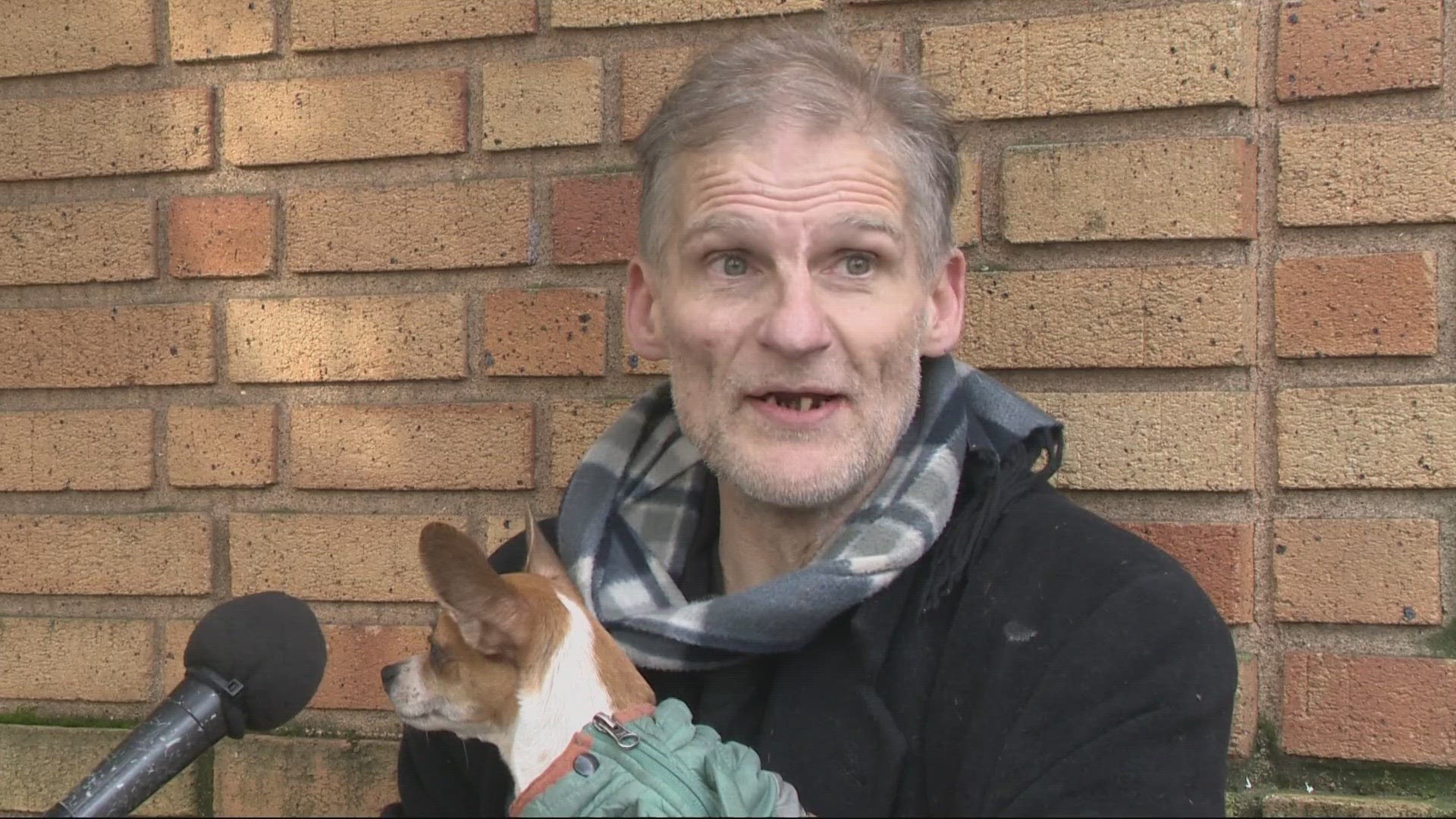PORTLAND, Ore. — The Portland Police Bureau is testing a new approach to try to combat the city's drug addiction and deadly overdose crisis, teaming up with outreach workers on street patrols to try to help drug users directly connect with support services. The new strategy comes as police have grappled with a series of drug-use hotspots that have popped up downtown.
Drug use hotspots
In recent months, drug users began gathering at a vacant building on the corner of Southwest 4th Avenue and Washington Street. Police increased walking patrols in the area as deadly overdoses rose, which prompted users to move a few streets away to Southwest 6th Avenue and Harvey Milk Street.
The latest hotspot is the block across the street from the Safeway between Southwest Jefferson and Columbia Streets.
"The grocery store. A lot of stealing going on, people getting daily household needs and trading them for drugs," said one man who spends time there.
"I'd say it's pretty severe," added another man named Denis, who has lived in Portland for most of his life and was once homeless and addicted to drugs.
Walking around the block near the Safeway, he said it doesn't take long to see the aftermath of addiction on the sidewalks.
"There's a syringe right there on the ground… If you walk around this corner walk around this block, you'll see 20, 30 different people that are using drugs or trying to cop drugs," he said.
A new approach
Portland police launched the outreach strategy last month, and have tried it on four days since Dec. 13. The officers and outreach workers engaged with 100 drug users during the first three days; police said 32 of them wanted shelter, 25 wanted detox, 18 wanted treatment and fewer than 10 wanted medical care, mental health care or housing.
Less than half of the 100 people ultimately ended up connected to services. Police said they're not currently tracking how many of them made it through the programs, but the outreach workers behind the program hope Multnomah County will step in to help them organize and collect that data if the program moves forward.
"It's an exciting early stage of a pilot project, and we are intentionally going slow, not because the need isn't great, but we need to make sure that we're actually able to help people," said Tera Hurst, the executive director of the Health Justice Recovery Alliance.
Portland's lack of recovery services and treatment beds makes the program more difficult, placing limits on how many people the teams can interact with.
Under Measure 110, Portland police hand out citations and $100 fines when they see someone using drugs in public, and officers are still doing that much more frequently than connecting people to outreach workers, because the lack of available services limits the amount of time that they can spend on the outreach strategy.
"There needs to be more treatment centers," said Cash, who got off drugs after leaving prison. "There needs to be more recovery housing, support groups."
PPB isn't alone in trying to come up with new strategies to tackle the crisis. Other first responder agencies like Portland Fire and Rescue are also experimenting with fresh approaches.
"We see firsthand the significant challenges our city is facing," fire chief Ryan Gillespie at a press conference earlier this month.
When responding to an overdose, PF&R crews can now give medication to help ease withdrawal symptoms, and if the person is willing, they can connect them to long-term recovery services at Central City Concern.
"We are uniquely suited to provide this alternative solution to the tragic opioid and addiction crisis," Gillespie said.
Outreach workers are continuing to call on the state legislature to prioritize and invest in addiction resources during the upcoming legislative session.

